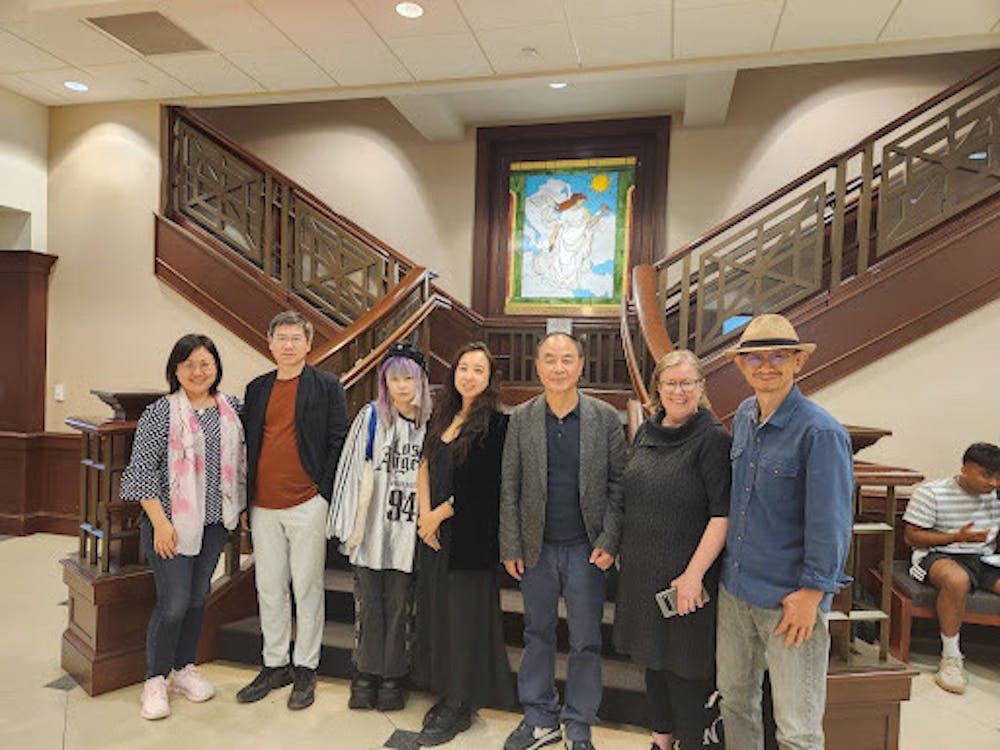By Sky Pinkett
Staff Writer
The College’s Asian American Pacific Islander Coalition and Department of English sponsored a poetry reading on Oct. 24, where four renowned Chinese poets were invited to read their works.
The four poets featured in this event were Wang Jiaxin, Jinjin Xu, Li Jiaoyang and Wang Jian.
The reading took place in the library’s auditorium. After some welcoming remarks from faculty, the first featured poet, Wang Jiaxin, stood up to begin reciting his poems in Chinese.
A common trend throughout the event was the poets reading their works in Chinese. While some of the poets, such as Xu and Jian, read both the Chinese and English translations of their poems, Jiaxin called upon audience members to read his poems in English.
One notable audience member who read out loud was an 8-year-old girl, who read Jiaxin's last poem, “In Our Time,” which he wrote after the 2022 Russian invasion of Ukraine.
Coming after Jiaxin was Xu, whose poems “There They Are” and “To Red Dust,” played around with time and its constraints upon our lives. Her next poem, “To a Brother Without a Name,” drew upon her grief in losing a close friend of hers whose name was forbidden to be spoken following his death. She read this powerful work of grief in English.
Jiaoyang followed Xu with her odes to various American states, such as “Odyssey in New Jersey” and “Letter from New York.” Jiaoyang then called back to the times of the pandemic with her “Ode to the Sea,” a poem that placed special emphasis on the difficulties the pandemic wrought upon the Asian community.
The poet to close out the reading was Jian, who switched from Chinese to English midway through his poetry. His poem, “White Pigeon Square,” used the humble perspective of a pigeon to explore commentary on human behavior and the environment.
As Jian finished with a bow, the audience was invited to engage in a Q&A with the poets. Multiple questions involved the difficulty with translating the essence of their works across languages and cultures.
“I think there was always this gaze of the English-speaking audience on my own work. It's hard for me to figure out what I am writing for myself versus what I am writing for the audience,” Xu told the audience. “Because I have internalized this gaze in whatever I write, whether it's in Chinese or English, there’s always this translation and awareness of the audience on what they may or may not understand.”
“You have to find a way to give something back,” Jiaxin added. “Poetry can have a lot lost in translation.”
As foreign as Chinese culture may have been to many of the American members of the audience present at the reading, the poetry of the four poets revealed that despite different cultures, the nuances of human emotion and experience remain familiar to all.







